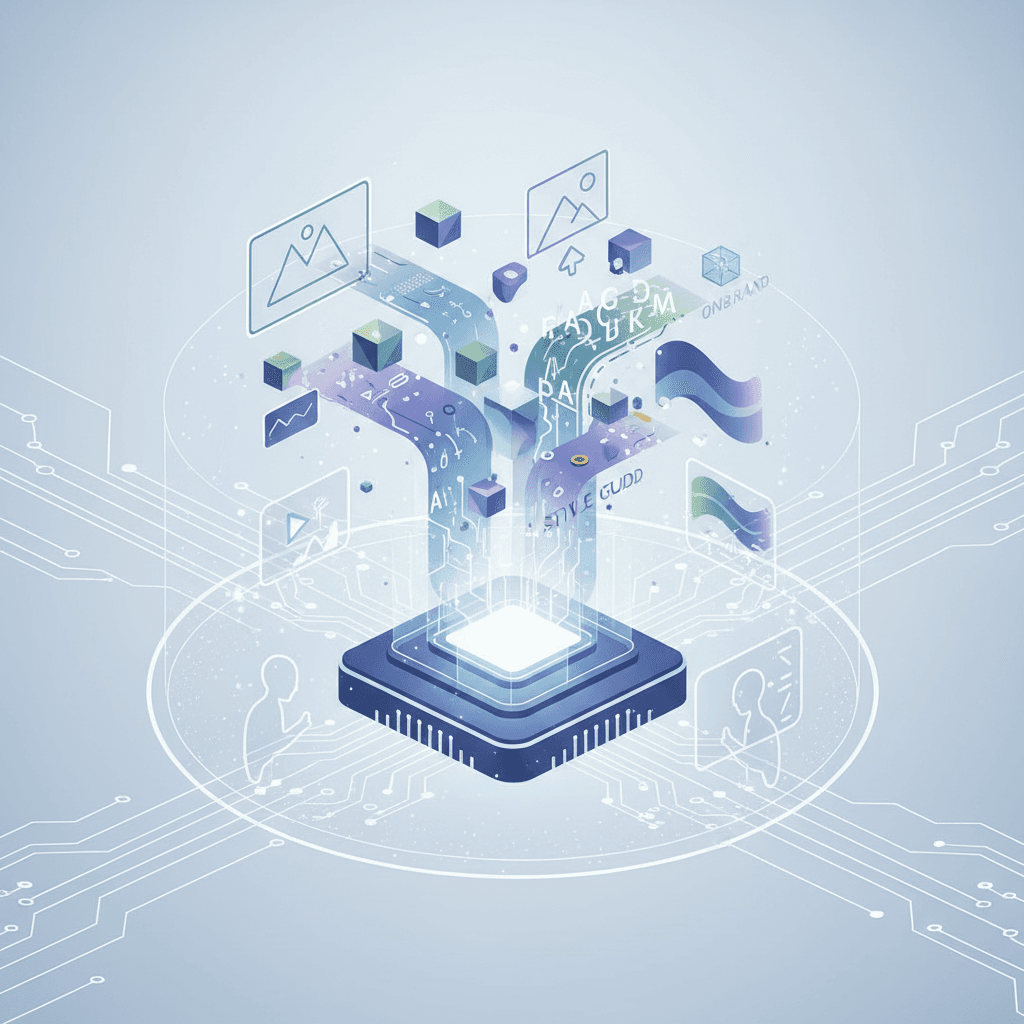Adobe Revolutionizes Enterprise AI with Foundry: Build Your Own Brand Engine
Adobe's AI Foundry empowers enterprises to build bespoke generative AI, securing proprietary data and delivering on-brand content at scale.
October 20, 2025

Adobe is deepening its foray into the enterprise artificial intelligence market with the launch of AI Foundry, a new service dedicated to building bespoke generative AI models for large corporations.[1][2][3] This strategic move positions the software giant to capture a significant share of the rapidly growing enterprise AI sector by offering companies the ability to create custom AI trained on their own proprietary data and brand guidelines.[2][4] The service leverages Adobe's Firefly family of generative AI models as its foundation, promising to deliver on-brand content at scale while addressing critical enterprise concerns around intellectual property, data security, and brand consistency that generic AI models often fail to meet.[1][5] Adobe's initiative reflects a maturing AI market where one-size-fits-all solutions are giving way to tailored, industry-specific applications, signaling a new phase of enterprise AI adoption.[1][2]
The Adobe AI Foundry is designed as a collaborative service where businesses work directly with Adobe's experts, including applied AI scientists and engineers, to co-develop their unique generative AI models.[3] This process involves training the foundational Firefly models on a company's specific intellectual property, which can include images, brand assets, product catalogs, and style guides.[2][3] The resulting custom models can generate a wide array of content, including text, images, videos, and even 3D scenes, all inherently aligned with the company's unique brand identity.[5][4] A key differentiator in Adobe's offering is its emphasis on commercial safety; Firefly was originally trained on licensed content, such as Adobe Stock, and by extending this to custom models trained only on a client's own assets, Adobe aims to mitigate the copyright and legal risks associated with web-scraped training data.[1][4][6] Furthermore, Adobe is shifting its business model for this service from its traditional per-seat licensing to a usage-based pricing structure, similar to cloud computing services, which allows for greater flexibility and scalability for enterprise clients.[5][7][8]
The primary target for AI Foundry is large enterprises, particularly those in marketing, media, and advertising, that face the immense challenge of producing a high volume of personalized, on-brand content across numerous channels.[1][9] Generic generative AI tools, while powerful, often produce inconsistent outputs that can dilute brand identity and may carry legal risks.[1][2] Adobe's service directly addresses this pain point by enabling companies to create what amounts to a proprietary "brand engine" for content creation.[2] For example, a marketing team could develop a single ad campaign and then use their custom model to automatically generate thousands of variations tailored for different seasons, languages, regions, and customer segments without sacrificing brand consistency.[5][7][4] This capability promises to dramatically accelerate the content supply chain, moving companies from laborious AI experimentation to tangible value and return on investment.[3] Early adopters of the service include major brands like The Home Depot and Walt Disney Imagineering, who are exploring its use to enhance customer experiences and streamline creative workflows.[3][5]
The launch of AI Foundry marks a significant development in the broader generative AI industry, highlighting a strategic shift towards enterprise-grade customization and vertical integration. As businesses move beyond initial experimentation with AI, the demand for secure, reliable, and brand-aligned solutions is intensifying. Adobe is leveraging its entrenched position within creative and marketing departments to provide a solution that not only offers powerful technology but also understands the specific workflows and challenges of its core user base.[4][10] This move places Adobe in direct competition with other tech giants like Microsoft, which has its own Azure AI Foundry, and other providers of large language models.[1] However, Adobe's deep expertise in creative tools, coupled with Firefly's proven track record of generating over 25 billion assets since its launch, provides a formidable competitive advantage.[2][5]
In conclusion, Adobe's AI Foundry represents a calculated and significant evolution of its enterprise strategy. By providing the tools for companies to build their own brand-specific generative AI, Adobe is not just selling software, but a service that integrates deeply into the core creative and marketing functions of a business. This initiative tackles the most pressing concerns for enterprises exploring generative AI—brand control, legal safety, and scalable content production. The success of AI Foundry could set a new standard for how generative technologies are deployed in corporate environments, accelerating the adoption of AI in regulated and brand-conscious industries and solidifying Adobe's role as a pivotal player in the next generation of digital experience creation.[1][2]
Sources
[2]
[4]
[6]
[7]
[8]
[9]
[10]